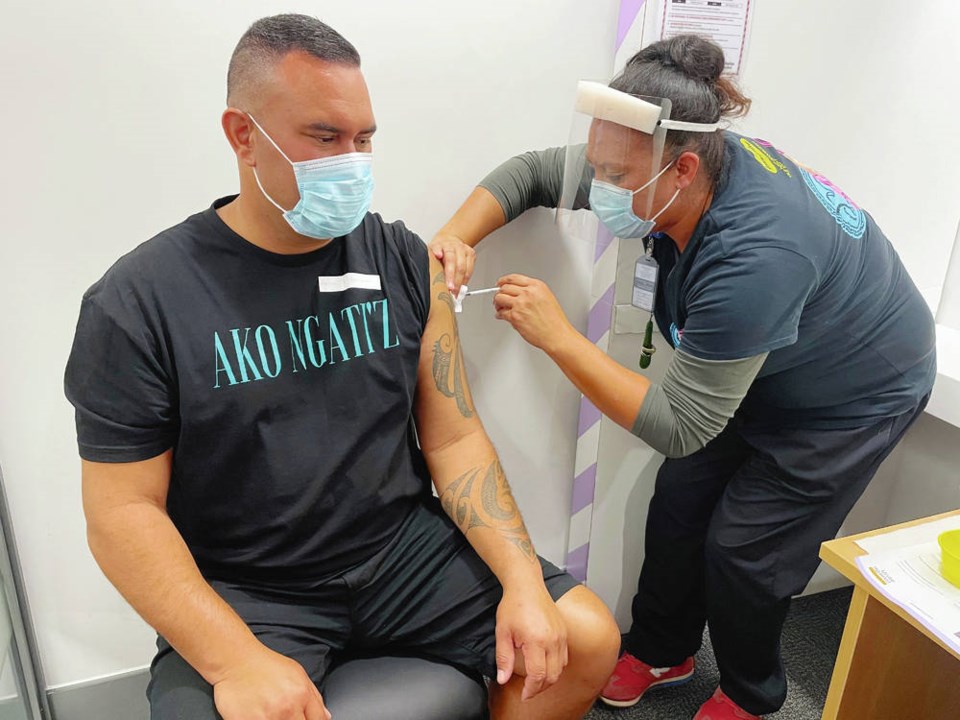A component called Social Awareness and Responsibility is embedded in a number of places in the B.C. curriculum.
It involves awareness, understanding, and appreciation of connections among people who are socially aware and responsible and who contribute to the well being of their social and physical environments where people feel safe and have a sense of belonging.
That’s timely and it brings to mind an op-ed piece in the Washington Post about New Zealand and why the COVID-19 death rate there is 0.53 per 100,000 people compared to the 160 per 100,000 people in the U.S. and 60.36 per 100,000 in Canada.
The writers, New Zealanders Matthew Milner and Richard Ngata, give credit for the much lower death rate and general incidence of COVID in New Zealand to Manaakitanga which is one of many customs of the indigenous Māori people, customs that are now taught in all New Zealand schools. Manaakitanga holds that others have importance equal to, and even greater than, one’s own.
Manaakitanga, say the writers, “derives from the Māori term “mana,” which is the spiritual life force and energy that every living thing possesses. When you honour the mana of others, your own mana will increase through the respect you have earned” adding that “individual freedom in the Māori culture is only as strong as the individual’s place in the community.”
Manaakitanga, they point out with a cheeky smack to anti-maskers, may be a long word “but it still might fit on a mask.”
Point well made, and Milner and Ngata admit that some people will argue that New Zealand enjoys geographic advantages when it comes to controlling the spread of COVID‑19, being an island nation.
But other nations, including Britain and the U.S., and to a much lesser extent Canada, they suggest, have had very different COVID outcomes possibly because of a notable lack of Manaakitanga being as firmly embedded in their cultures.
This community-based social awareness and responsibility approach underpins many aspects of life in New Zealand which provides health care to anyone who needs it and where Manaakitanga is not just embedded here and there in the general curriculum but instead is one of four key values the Teachers’ Council for New Zealand wants teachers to focus on in every classroom.
This strict lockdown in New Zealand went on for six weeks, and while there was a degree of pushback, the “team of five million,” as Prime Minister Jacinda Ardern calls New Zealanders, stayed home and reduced the spread and the impact of the virus substantially.
New Zealanders, Indigenous and non-Indigenous, were apparently willing to give up many of their individual freedoms and face personal hardship for the benefit of the community.
That has not been the case everywhere, and the results continue to be predictable according to a recent public forum conducted at the Massachusetts Institute of Technology. Leading scholars from the Institute examined the connections between social practices and national responses to the pandemic.
Among other speakers Peter Krause, an associate professor of political science at Boston College and a Middle East expert, talked about the situation in Egypt, Jordan, Israel, and Lebanon.
As different as those countries all are, Krause noted, the reaction to pandemic policies varies among social, ethnic, and religious subgroups: “It’s not just country-wide, but within each country … you see these legacies of a lack of trust in the government,” Krause said.
While most scholars at the event were “reluctant to ascribe outcomes to culture,” said MIT political scientist Chappell Lawson, “during a time of a global public health crisis, it is at least possible to ask how social practices have fed into the varying responses around the world” adding that “the basic question related to culture response is how the habits and mindsets of a group of people affect what people do in the public sphere.”
Perhaps that’s why Dr. Bonnie Henry’s message to British Columbians to “be kind, be calm, be safe” has focused on empathy and collective understanding more than restrictions and criticizing others.
Henry’s phrase definitely has a Manaakitanga sound to it and, to be pragmatic, it is not just about being nice to each other. It is actually a mantra directed, as the Māori philosophy is, to the survival of the population in the face of a serious health crisis.
Maybe it is time that the B.C. curriculum’s nod to social awareness and responsibility becomes a more frequent theme for discussion in every B.C. classroom K-12.
Geoff Johnson is a former superintendent of schools.



